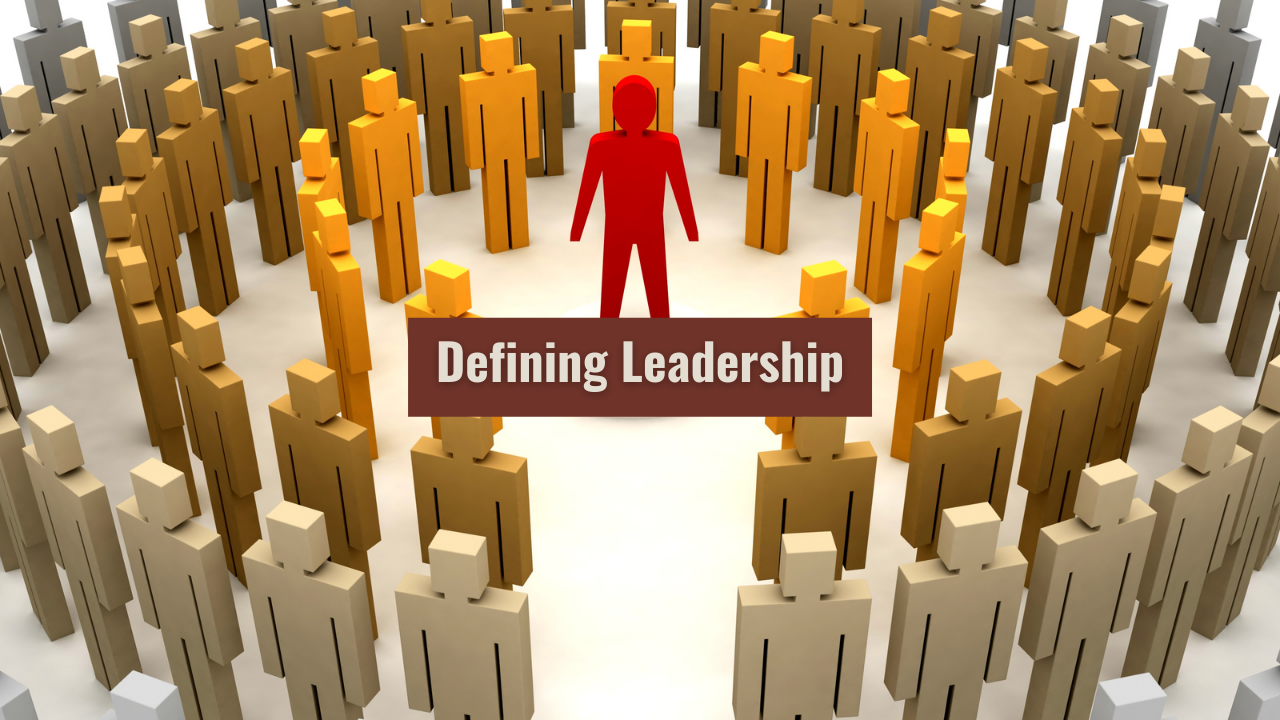
Defining Leadership

When I think of defining leadership, I think of a time when I visited the Leaning Tower of Pisa when I was stationed in Italy. It was great fun as we rode our Harley Davidson motorcycles from Sicily Italy to Silkeborg Denmark. In Italy, I remember marveling at The Leaning Tower of Pisa with its nearly four-degree lean – the result of an unstable foundation…
Great leaders have a solid foundation that has been carefully constructed over time, and without that foundation, you may find yourself with a four-degree or more lean creating instability. The main purpose of a foundation is to hold the structure above it and keep it upright. A poorly constructed building foundation can be dangerous to the occupants and the neighborhood. A leader’s foundation must support the immediate team, the business operation, and the stakeholder expectations. With high-rise buildings touching the sky these days, it has become all the more important to have powerful foundations. High visibility leaders have the same requirement…a powerful foundation that is both deep and wide, a foundation that will survive the onslaught of attack from both internal and external sources, while simultaneously recognizing and creating opportunities for the business and the team to flourish. A solid leadership foundation begins with your personal definition of leadership.
Your Personal Definition of Leadership
Let’s begin this construction project by examining a few definitions and observations regarding defining leadership.
- “Leadership is the knack of getting somebody to do something you want done because he wants to do it” — General Dwight D. Eisenhower
- “Leadership and learning are indispensable to each other” – JFK
- Warren Bennis said, “leadership is the capacity to translate vision into reality.”
- The Air Force defines leadership as “the art and science of
- influencing and directing people to accomplish the assigned mission.”
- Oxford Dictionary lead·er·ship /ˈlēdərˌSHip/ noun, The action of leading a group of people or an organization
- The single biggest way to impact an organization is to focus on leadership development – John Maxwell
- Pizzini: “Leadership is enabling others to achieve their objectives, and requires comprehensive awareness, developed through experience, education, and training.”
- The USAF definition includes the words art and science. There are books written about the art and science of leadership but it all begins with personally defining leadership.
At this point, you should begin formulating your own definition of leadership. Some leadership organizations recommend that you develop a personal mission statement. My observation is that this is the same as developing your own definition of the word leadership. If you develop and adhere to your own personal definition of leadership, you will know when you are leading, and when you are not leading. I can break my definition down into two words – Enabling Others. John Maxwell does it even better with the one-word definition, Influence. As you can see in my full definition above, I believe that leadership is “enabling others to achieve their objectives”. Those objectives can be for the good of the workplace and ROI, professional and personal development, or other interests. I further believe that every highly capable leader has gone through the crucible of formal education, years of experience (Gladwell’s 10,000 hours comes to mind), and has attended hundreds of micro training events up to the point of becoming an influential and memorable leader. You can simply adapt to an existing definition that suits your brand, or you can develop your own definition.
Now that you have a personal definition of leadership, you have the cornerstone of your foundation in place.
The Three Pillars
In my personal definition of leadership, I mentioned the three pillars of experience, education, and training. Let’s take a moment to break down these pillars beginning with experience.
Experience
Leadership experience often occurs early in one’s life. You may have held leadership positions on your sports team, scouts, school clubs such as debate and band, or perhaps babysitting. These childhood experiences are the seeds of leadership. As you planted these seeds, your experience as a leader began to take shape and even grow. You probably adopted a style of leadership that resembled your parents, teachers, and coaches. This was also probably unconscious leadership, in that, you did not view yourself as a leader. Now let us look at the experience in the workplace. If you are responsible for anyone other than yourself, you are in a leadership position. In my consulting work, I often encounter small to mid-sized businesses that do not pay attention to leadership development until there is an issue. In a typical small business, the entrepreneur is focused on the product or service and leadership development is not on the radar. Fast forward a few years, after the company has grown and hired additional staff. These new hires are likely proficient at the skill set you hired them to perform, but they also need to be led. They need to see a strong leader who can communicate the corporate vision. This is also a time when mistakes are made as leadership is not given its due. All of us, myself included, have made mistakes that we regret in leading our teams. We have also made great decisions that resulted in success. These early experiences in leadership should be captured in the conscious mind to build upon. Take a moment here to reflect on your early experiences as a leader which will help you be empathetic in developing those you currently lead, or those that you will be leading soon.
Education
Formal education is a key component of defining leadership in my experience. Education gives you, the leader, tools in decision making, whether or not you recognize this aspect of your leadership. Education develops among other things, your ability to communicate across the various mediums of communication such as internal, external, horizontal, vertical, written, spoken, and many others. Reading this book falls under both education and training from my perspective. I also firmly believe that education alone is not nearly enough to prepare someone for a leadership role. As Joe Dispenza wrote in his book Breaking the Habit of Being Yourself, “education without experience is mere philosophy.” Education has many forms, from university-level instruction to simply reading books. I believe that a balance of formal education along with other educational experiences enables the best leader within you to emerge.
Training
Micro training events throughout one’s career are critical to leadership development. Training topics are varied and can include almost anything. Email etiquette for example is one such micro training event. Email is considered official business communication. What does this have to do with defining leadership? As the leader of an organization, department, or simply leading others, you will be well served to require those you lead to use proper email etiquette. Email can easily be forwarded for the world to see. Ultimately, the author of an email represents the organization, which reflects upon the leadership within that organization. Other micro training events that I have attended over the years include communication, decision making, team building to include forming, storming, norming, and performing, just to name a few. My one-day seminar, two-day off-site, and three-day retreat are leadership training events. Franklin Covey, Dale Carnegie, John Maxwell, and various other training organizations offer hundreds of micro training events and topics. Deep dives on these various topics are a great way to develop your subordinates if you have them research the material and present it to your team. In my weekly staff meeting with my leadership team, we review aspects of leadership through book reviews and other micro training events.
Ultimately, you are the best leader you can be when you are leading from the conscious mind executing your personal definition of leadership. For me, that is enabling others to accomplish their objectives.
Learn more about leadership events for you at our website…
Search our hashtags: #elevateyourleadership #robertpizzini